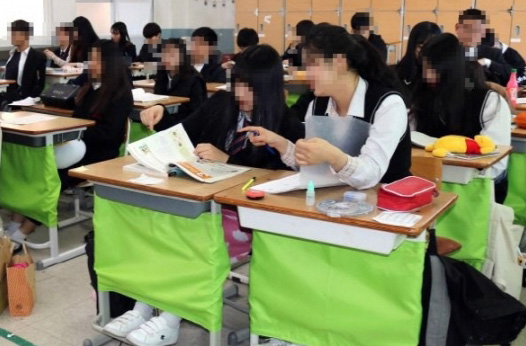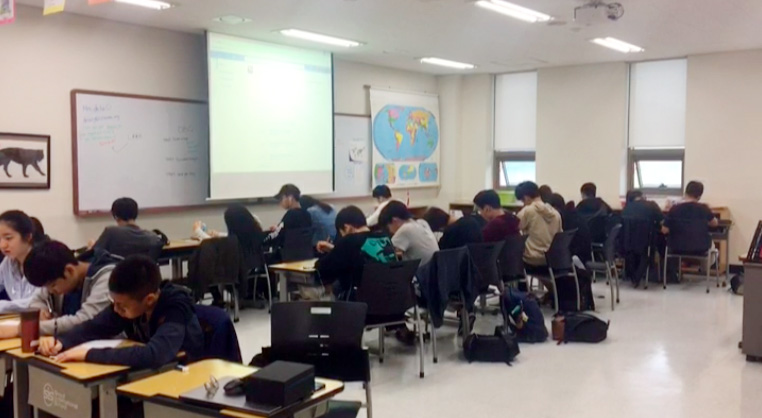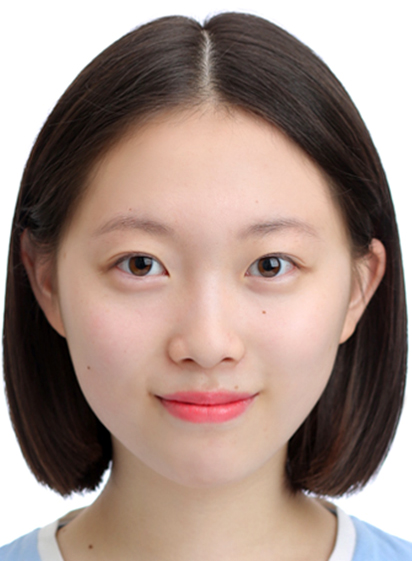Every time I log into Facebook or YouTube on a Friday night, my timeline is inundated with reaction posts to the latest episode of Korean soap opera SKY Castle. The show has received national acclaim for its poignant reflection of the elitism that is based on education and background deeply embedded into Korean society. Although the show has dramatized the extremity of Korea’s obsession with lineage for the sake of ratings, the truth is that South Korea really does have an unhealthy obsession with education and college – to the point that it hinders students from maintaining their mental health. Although most Koreans know that Korean school students suffer from an endless system of academies, many think that international school students have it easier by studying through an American education system. As I personally thought that this was a common misconception, I wanted to interview both Korean and international school students to address this topic.

After watching SKY Castle, what differences and similarities did you find between international schools and Korean schools?
Ji Sue Shin (Sophomore at Seoul International School): It showed how Korean education systems, influenced by traditional social standards of success, prioritized tangible results over morality. The pursuit of stellar grades and prestigious universities seems to be a universal goal, but while international schools value ‘well roundedness”, SKY Castle showed how Korean education systems put grades over all else.
Jessica Ahn (Sophomore at Seoul International School): - After watching SKY Castle, my view on the Korean education system didn’t really change… I honestly felt like SKY Castle was more about international schools because it orbited around rich families with parents that would do anything to get their child to the best school.
How do you think international schools as a whole approach education?
Ji Sue: International schools provide students with an environment that values social skills and extracurricular activities in addition to academics. Students’ abilities to work in teams are tested frequently through multiple group projects while extracurricular activities such as sports and music are highly encouraged.
Jessica: - International schools teach the American system, but the method of teaching is like Korean schools; they continue to push the learning pace forward, and students who are not able to catch up are left behind. This is why I feel like even though international students have fewer subjects, we have more pressure than Korean students.

Do you think your school in specific prioritizes student mental health in comparison to other international or Korean schools? Why or why not?
Ji Sue: No, my current school tends to ignore students’ mental health. A large aspect of this is influenced by Korean cultural beliefs that view mental health as a ‘defect’ and a taboo subject in general.
Jessica: - Our school does have a counselor system that ensures students with mental health. I believe my school has a good system for student mental health, but we never use the counselors for mental support. That’s why we’re always so stressed out and end up becoming mentally unhealthy.
Following the huge success of SKY Castle, South Korea has regained interest toward the correlation between its education system and low mental health levels. However, most across the country believe that international school students “have it easier” than Korean school students do. What is your response to such opinions?
Ji Sue: Although Korean education systems are notorious for their harsh, vigorous schedules, it is false to assume international schools are more lax in any way. Although international schools’ value of extracurricular activities is definitely positive, it also puts additional burdens on students to be high achieving in every aspect of their school life. Academics are also pursued on a rigorous level, often threatening the physical and mental health of students.
Jessica: - International schools are considered “easy” in Korea because we take fewer subjects than Korean school students, have more opportunities to retake the SATs, and follow the American education system. I personally do not believe that international schools are easy with the level of stress I witness everyday among students. Even if we take fewer subjects, we take tests more frequently than Korean school students, have harder AP subjects, and have to participate in extracurricular activities. While Korean school students may believe that we have an “easy life,” we actually have an intense amount of work to maintain.
Interviewing my fellow classmates re-emphasized the fact that Korea’s education system is equally hostile in all sorts of schools across the nation. Although international school students might have less focus on specific periods of testing and the CSAT, we instead have to focus on being well rounded in terms of academics and personal identity. I hope that through this resurgence of interest in the faults of Korean education, the nation as a whole can reform to bring less stress to its youth.

Rachel Lee
Grade 10
Seoul International School
By Rachel Lee

